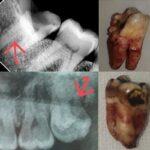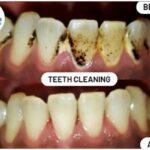- Why is oral hygiene important?
Oral hygiene is important for maintaining good overall health and preventing oral and dental problems such as cavities, gum disease, bad breath, and tooth loss. Regular brushing and flossing help remove plaque, a sticky film of bacteria that forms on teeth, which can cause damage to the teeth and gums if not removed. Proper oral hygiene can also help prevent more serious health issues such as heart disease, stroke, and pneumonia.
- Importance of oral hygiene in preventing serious health issues
Maintaining good oral hygiene can play a role in reducing the risk of certain cancers and serious health issues. For example:
- Mouth cancer: Regular brushing and flossing help remove plaque and reduce the risk of oral cancer by detecting any abnormal tissue growth in the mouth early on.
- Heart disease: Gum disease has been linked to an increased risk of heart disease as bacteria from the mouth can enter the bloodstream and contribute to the development of cardiovascular problems.
- Respiratory infections: Poor oral hygiene can also lead to respiratory infections such as pneumonia, as bacteria from the mouth can be inhaled into the lungs.
- Diabetes: People with diabetes are at an increased risk of gum disease, and poor oral health can also make it more difficult to manage blood sugar levels.
It is important to note that while oral hygiene plays a role in reducing the risk of these health issues, it is just one factor among many and not a guarantee. Regular visits to a dental professional and maintaining a healthy lifestyle are also important in maintaining good overall health.
- What happens if I ignore dental issues?
If you ignore dental issues, they can get worse over time and lead to more serious health problems. Neglecting dental problems can lead to tooth decay, gum disease, and tooth loss. It can also cause infections that can spread to other parts of the body and affect overall health. In severe cases, untreated dental issues can lead to life-threatening conditions such as heart disease, stroke, and pneumonia. Regular dental check-ups and proper oral hygiene can help prevent these issues and maintain good oral health.
Ignoring dental issues can lead to several problems, including:
- Tooth decay: Neglecting dental hygiene can result in plaque buildup, which can cause tooth decay and cavities.
- Gum disease: Poor oral hygiene can also lead to gum disease, which is an infection of the tissues supporting the teeth.
- Tooth loss: Advanced gum disease can lead to tooth loss.
- Pain and discomfort: Ignored dental problems can cause pain, discomfort, and sensitivity in the affected teeth.
- Bad breath: Neglecting oral hygiene can cause bad breath, also known as halitosis.
- Spread of infection: Ignored dental problems can also lead to the spread of infection to other parts of the body, potentially affecting overall health.
- Increased treatment costs: Ignoring dental problems can lead to more complex and costly treatment down the line.
Therefore, it’s important to address dental issues promptly to prevent the development of more serious problems.
- Prevalence of oral diseases in urban Indians
The prevalence of oral diseases in urban Indians is relatively higher compared to rural populations due to a number of factors, including a higher intake of sugar and processed foods, poor oral hygiene habits, and limited access to dental care.
It is also estimated that the prevalence of oral cancer in urban areas of India is increasing, with lifestyle factors such as tobacco and alcohol use playing a major role.
Overall, while the prevalence of oral diseases is higher in urban populations, it remains a significant issue in both urban and rural areas in India, and improving access to oral healthcare and promoting oral hygiene practices are important steps in addressing this problem.
- Oral Hygiene Tips
- Brush thoroughly twice a day with a soft bristled toothbrush
- Clean between teeth daily to remove plaque from areas your toothbrush can’t reach
- Eat a balanced diet; this helps keep your teeth and gums healthy
- Don’t smoke or use tobacco
- Replace your toothbrush every three months or sooner if the bristles begin to look worn out
Visit your dentist at least twice a year for a professional cleaning and examination.













